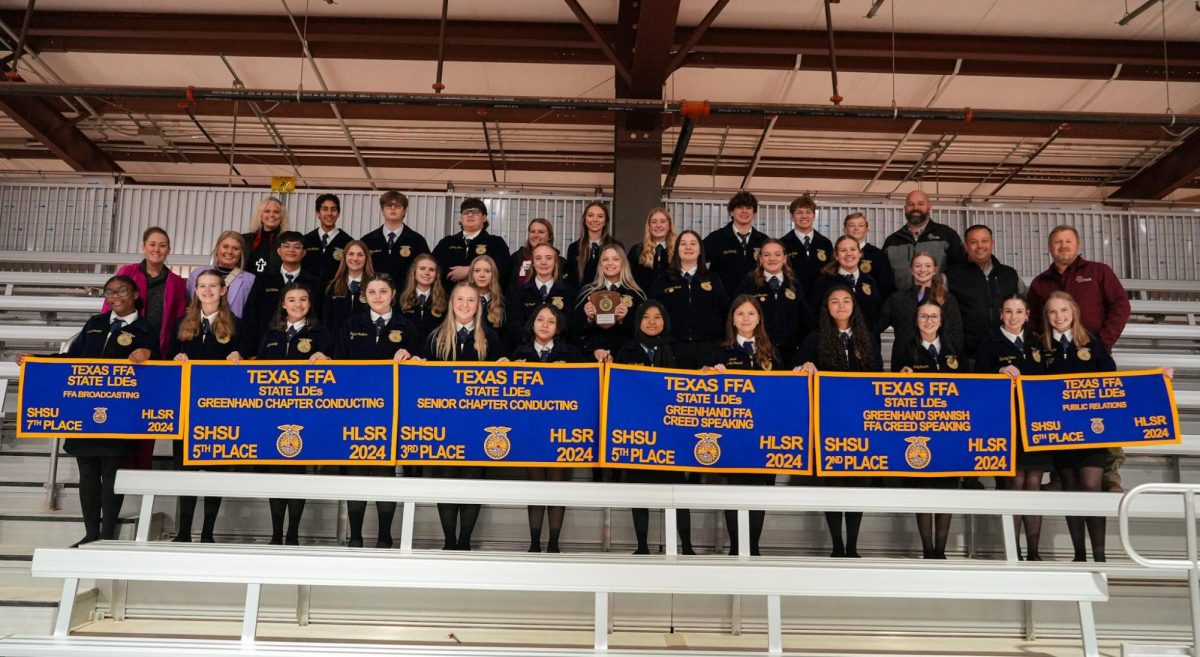The lines get shorter as hands scribble the last bits of information on the rectangular, light-blue sheet. The sounds of voices and suitcases rolling barely drain out the questions coming out of the officer’s mouth, each inquiring about more information than the one before. On the far right the lines for U.S. citizens get shorter, yet the majority of the crowd remains on the left side where passports of all different colors wait for the stamp that will let any man or woman enter the United States.
According to a survey conducted by the U.S. Census Bureau, 16.1% of the Texas population is composed of foreigners, identified as anyone who was not a U.S. citizen by birth. However, many foreigners seek citizenship by naturalization such as Cinco Ranch students junior Isabel Soto and senior Jove Brar.
American citizenship grants naturalized individuals the same rights as born citizens, such as right to vote and the opportunity to receive federal grants and scholarships for education. Whether it is for a brighter future or a better education, thousands of men and women of all ages purchase a one way ticket to the United States each year.
Senior Jove Brar was born in Canada and moved to the United States in 2001. His family first moved into the country through Brar’s dad’s H-1B visa, a non-immigrant visa that allows an employer to employ a foreign worker in specialty occupations. They then acquired a green card in 2003, changing their immigrant status became permanent residents. He and his family received their citizenship Feb. 23 of this year.
“I went through ten years of the citizenship process,” Brar said. “As much as a speeding ticket in that period of time could have been grounds to deport me.”
Before acquiring full citizenship, immigrant visas are given, which provide temporary residency until receiving a green card, although it is not guaranteed that one will be given. If residency is approved and a green card is issued, the holder must remain in the country for a total of five years and refrain from breaking state or federal laws for that may result in deportation or rejection of the citizenship application.
“Now that we actually got our citizenship I feel that I fully get all opportunities,” Brar said. “Finally I can just sit back and relax; I am a citizen.”
The desire to come to the United States by foreigners is often driven by the wide range of opportunities provided by America, which created the idea of the American Dream. America is often seen as a safe haven from all the dangers many countries around the world pose on its citizens.
“I feel like the United States is a perfect country and I am extremely honored to be a citizen of this country,” Brar said.
Junior Isabel Soto also became a citizen on Feb. 23. Unlike Brar, Soto has lived in the United States for so long that considering herself from Guatemala, her birth country, seems unfit.
“It is weird feeling like you are from two countries,” Soto said. “It is like I am officially part of something that I already felt a part of.”
The time, money, and patience involved in gaining citizenship become tiresome for those involved in the process. The regulations and limitations placed on those in the midst of the process can also seem overly controlling; however, the many men and women involved in the citizenship process deem it worthwhile.
“My parents went through being residents, the whole time waiting to become a citizen,” Soto said. “Now it is official, we are citizens.”
Besides effecting the present, becoming a citizen has positively influenced Brar’s and Soto’s future.
“As a citizen I get more options, especially in scholarships since many are only applied to citizens,” Soto said. “It opens a lot of new opportunities.”
“I would have applied to join the NROTC (Naval Reserves Officers Training Corps) program and probably gotten in if I had been a citizen, which would have certainly changed my future,” Brar said. “Instead I am going to a school for engineering, but I feel this was the best choice for me since it is more stable.”
Although the saying, “the grass is always greener on the other side” often describes the mistaken opinion of a jealous individual, Brar and Soto would agree that sometimes it might just mean exactly what it says.
“I often tell people that they have no idea how lucky they are to be born here,” Brar said.
Many living in Katy cannot wait for the day they leave this city behind. Ironically enough, many looking in from the outside dream of the day they will call this home.



